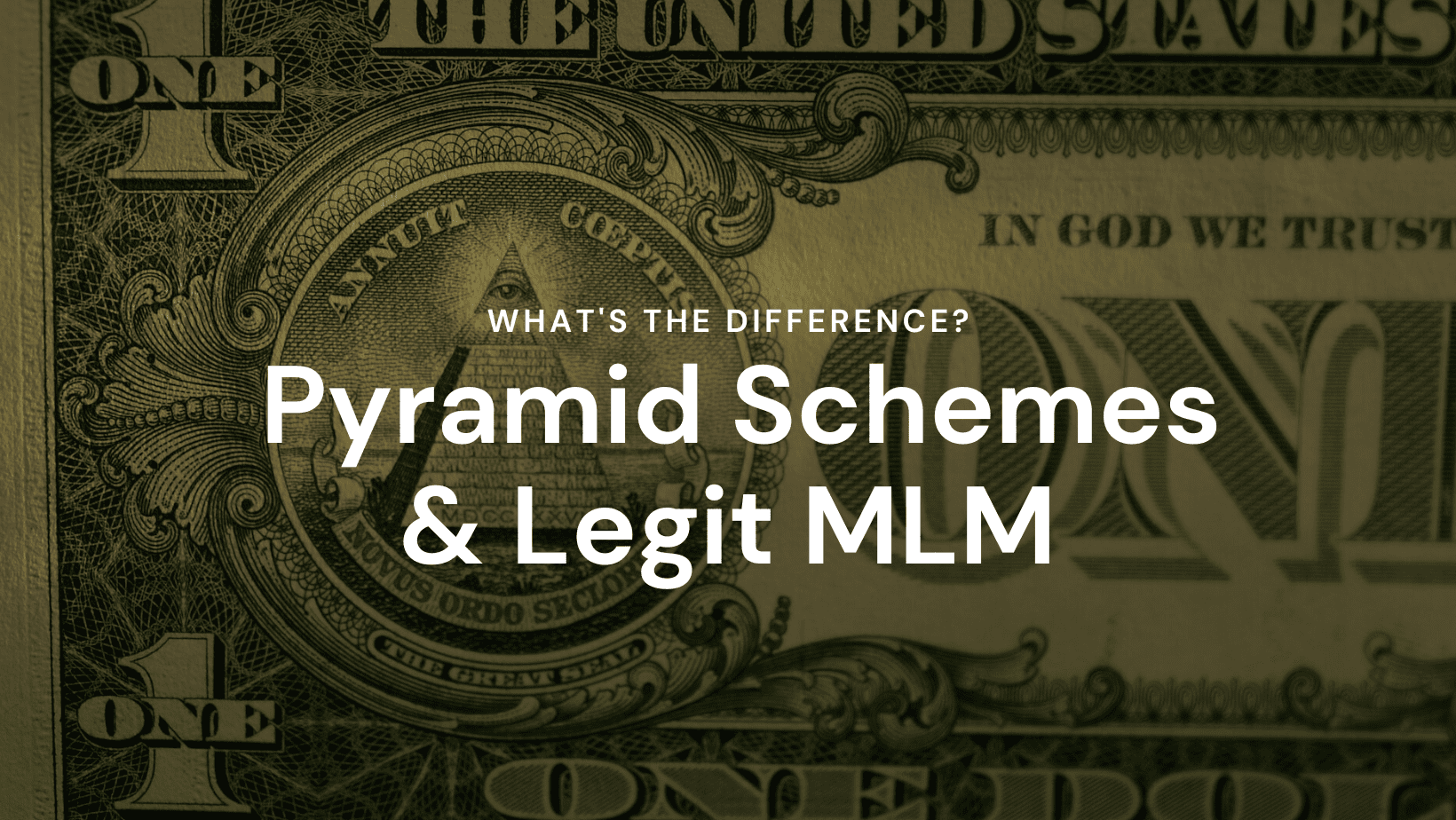Hey there! Have you ever wondered what differentiates a pyramid scheme from a legitimate multi-level marketing (MLM) business? At first glance, both may seem quite similar because they involve hierarchical structures and the possibility of earning income from your recruits’ efforts. However, there are some crucial differences that determine the legality and long-term sustainability of these business models. So, let’s dive in and explore these differences together.
Pyramid Scheme: The Red Flags
A pyramid scheme is an illegal business model that primarily focuses on recruiting new participants to generate income.
Here are some red flags to watch out for when identifying a pyramid scheme:
- Where’s the product?: One major red flag is the lack of a legitimate product or service. Pyramid schemes often have no real products or services to sell, or if they do, they might be overpriced, of low quality, or tough to sell. The focus is on recruiting new members rather than selling products or services to actual customers.
- It’s all about recruitment: In a pyramid scheme, your income comes mainly from the fees paid by new recruits or the purchases they’re required to make. This creates a system where those at the top of the pyramid make the most money, while those at the bottom struggle to recover their investment.
- Growing pains: Pyramid schemes rely on constant recruitment, which makes them inherently unsustainable. Eventually, it becomes impossible to recruit enough new members to support the income of those at the top, causing the scheme to collapse and leaving most participants with financial losses.
Legitimate MLM Business: The Green Lights
On the flip side, a legitimate MLM business is a legal business model that emphasizes selling products or services through a network of independent distributors.
Here are some key features that define a legitimate MLM business:
- Real deal products or services: Legit MLM businesses offer high-quality, marketable products or services that provide real value to customers. The primary focus of the business is on selling these products or services, not just on recruitment.
- Income from sales: In a legitimate MLM, you primarily earn income through selling products or services to end consumers, both by yourself and through your downline. While recruitment may play a part in earning extra income, it’s not the only basis for compensation.
- Built to last: A legit MLM business can sustain long-term growth because it’s based on selling products or services rather than constantly recruiting new members. This ensures that participants’ income is more stable and less likely to collapse as the business grows.
Final thoughts:
So, there you have it! To tell a pyramid scheme apart from a legitimate MLM business, keep an eye on the company’s focus, compensation structure, and the sustainability of its business model. A legit MLM emphasizes selling actual products or services, while a pyramid scheme puts recruitment in the spotlight and relies on an unsustainable growth model that ultimately hurts most participants financially.
Now that you’re armed with this knowledge, you’ll be better equipped to navigate the world of direct selling and make informed decisions about which business opportunities to pursue. Good luck out there!
Interested in Network Marketing? Learn more about the legitimate company Jeunesse Global here
Can You name a few Legitimate MLM, Network Marketing, Direct Sales Companies?
Originally posted in Wealthy Affiliate


Leave a Reply